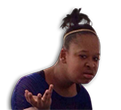How Afroasiatic lanaguges are connected is honestly incredibly mysterious. You have lots of linguists who say berber and semetid branches are closer. But we have no idea how that would even physically be possible. Theres also no real explanation for where eygptian came from.I have come to the realisation [many] words found in Somali, which are also found in Arabic are nether loan words nor borrowed, but share the same linguistic root.
You are using an out of date browser. It may not display this or other websites correctly.
You should upgrade or use an alternative browser.
You should upgrade or use an alternative browser.
Nabad etymology
- Thread starter DALMAR0_0
- Start date
Your stuff is intresting but its impossible to know if the sound changes your proposing are accurate. They definitely sound plausible but unless you post refrences or something its impossible to even evaluate your claims. Since nobody on this forum seems to have that level of linguistics knowledgethe verb ( to play ) in the ancient Egyptian verb ḥꜥb
( حعب ) is related to Proto-Semitic *lʕb.
Compare Arabic لعب (lʕb) .
L ↔ ḥ ( ح ) ,
ḥꜥb ( ḥaʕib حعب ) ↔ لعب ( laʕiba ) .
ḥꜥb ( ḥaʕib حعب ) / لعب ( laʕiba ) is related to Somali verb ciyaar ( ʕiyaar ) which means play .
Somali verb : la ciyaar ( la ʕiyaar ) means to play or cause to to play / play with .
L ↔ ḥ ( ح ) , b ↔ r ,
la ciyaar : la ʕ-y-r ↔ la ʕ-y-b ↔ ḥ ʕ-y-b ,
la ciyaar ( ʕiyaar لَعِيار) ↔ لَعِيب (laʕiib ) / ḥꜥb(ḥaʕiib حَعِيب )
لَ عِيار ↔ لَ عِيب / حَ عِيSomali : n-b - d (nabad)
Egyptian : s - n-b (sanab)
Semitic : s - l-m (salam) ,
Tigrinya : d - ḥ-n (daḥan) ደሓን ኩን.
Amharic : b - h-n (behin) በህና ሁን.
d ↔ s , ḥ ( ح ) ↔ l , b ↔ n / m ,
∴ s-n-b ( 𓋴𓈖𓃀 ) ↔ s-l-m ↔ d-ḥ-n ,
s-n-b ( 𓋴𓈖𓃀 ) ↔ n-b-d (nabad)
View attachment 371683
Your stuff is intresting but its impossible to know if the sound changes your proposing are accurate. They definitely sound plausible but unless you post refrences or something its impossible to even evaluate your claims. Since nobody on this forum seems to have that level of linguistics knowledge
Do you have any objection to the fact that there is a common linguistic link between these consonant sequences of the ancient Egyptian verb ḥꜥb ( ḥ-ꜥ-b / ح-عِ-ب ) , Arabic verb لعب ( l-ʕ-b / ل-عِ-ب ) and the Somali verb la ciyaar ( l-ʕ-y-r : la ʕiyaar )?
Do you have an objection to the phoneme ḥ ( ح ) interchangeable with the phoneme L and the phoneme D and others?
L / d ↔ ḥ ( ح ) .
qalax ( qalaḥ ) :
1. qalax ah : dhul dhagax badan oo oomane ah.
translation : a rocky , a dry, barren land .
qarax ( qaraḥ ) :
qarax ah: dhul oomane ah oo aan biyo lahayn.
translation : A dry land without water.
qallal (-alay, -ashay) : Wax qoyanaa engegid.
qallal : dry , get dry , dryness.
L / d ↔ ḥ ( ح ) ,
qalax ( qalaḥ ) = qarax ( qaraḥ ) = qallal .
Egyptian ḥbs : to clothe (a person or body part) ( with (a garment))
, to be(come) clothed (with (a garment)) .
Hebrew ḥbš חָבַשׁ (ḥabash) : to wear (a hat) .
Arabic lbs لَبِسَ (labisa) : to wear; to put on (clothing) , to clothe oneself, to get dressed .
Somali :
gal : to cover,
gal → gasho (gashaday, gashatay) ,
gasho ( gašo ) ,
gasho ( gašo ) : to put on (one’s clothes) ,to wear .
g → b ,
l → š ( sh ) / s ,
l → ḥ ,
gal → gasho → la +gasho → la +basho → labasa / ḥabash / ḥabas .
Somali la gasho → Arabic labisa / Egyptian ḥabas / Hebrew ḥabash .
Last edited:
Seems like a weird etymology since the word for news/report in somali is war. Which we can tell must be very archaic since its used in the clan name warsangeli
I often wondered if the word war and روى might be related somehow. يروي, wariyey .. idk
cunug3aad
3rdchild · Arbe lugo dhaadheer
Maybe there is a common afroasiatic root they share. However there must be more example of similar aa languages with similar word because the word is too phonetically simple to be significant proofI often wondered if the word war and روى might be related somehow. يروي, wariyey .. idk
bobby_hill-Punt
VIP
Nigga are your a retardIs the word for peace in somali loaned ? I summed it was arabic but I cant find it in af-arabic
 ? how are you gone ask a question about the definition of a word without full understanding it, while still passing on a Somali word to Arab
? how are you gone ask a question about the definition of a word without full understanding it, while still passing on a Somali word to Arab  language and yet state by the way I don't read nor comprehend the Arab language
language and yet state by the way I don't read nor comprehend the Arab language . These tards should not be allowed to post on here
. These tards should not be allowed to post on here 
Riftvalley
VIP
Yes it is a bit of a stretch. In Somalia “nab” or Nabid means to accuse someone of words they have not uttered. In Semitic languages you have words like Navi (caller or prophet) which some Hebrew scholars say comes from uttering something on the lips or proclaiming it. Nabi in Arabic comes from a similar root.Seems like a weird etymology since the word for news/report in somali is war. Which we can tell must be very archaic since its used in the clan name warsangeli
It might be an Archaic stem whereby Somali uses the word in a different context. The word Naba in the Quran probably translated as an announcement or proclamation rather than news in the traditional sense. Somali ku nabid or nab could be totally unrelated. Allahu mustacan.
Trending
-
-
-
Somali diaspora man shunning new child marriage ban making rounds on reddit
- Started by caanoshaah
- Replies: 29
